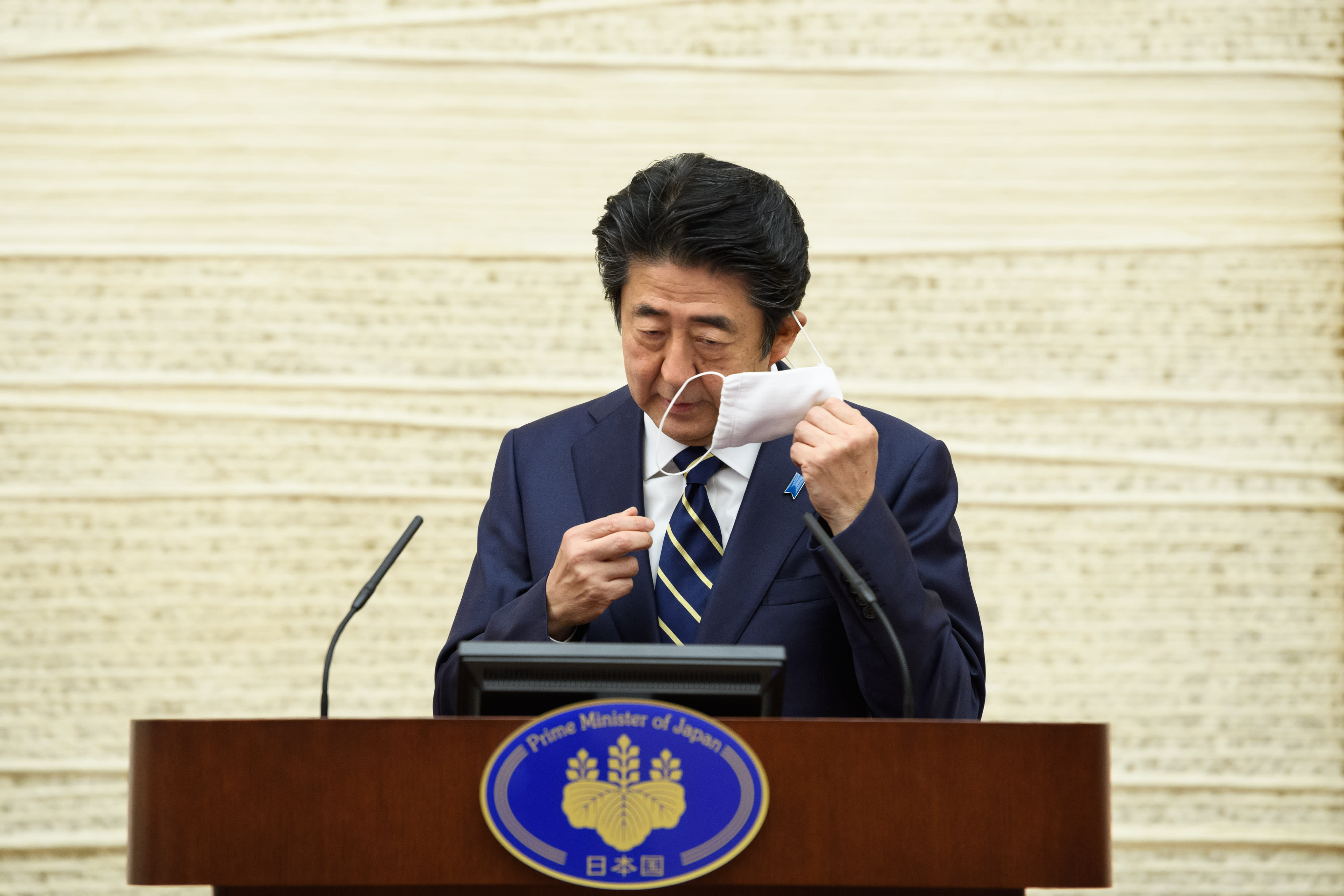
Shinzo Abe, Japan’s prime minister, removes his protective face mask during a news conference in Tokyo, Japan, on Thursday, May 14, 2020.
Akio Kon | Bloomberg via Getty Images
Whoever succeeds Shinzo Abe as Japan’s next prime minister is set for a “difficult year” ahead, Teneo Intelligence’s Tobias Harris told CNBC in an email.
The analyst said the next leader needs to address pressing, “significant issues” after Abe’s surprise resignation of long-standing incumbent on Friday.
Harris said that includes a “wide-open debate” about Japan’s national security strategy as well as new defense program guidelines and negotiations with the U.S. over host-nation support.
“The next prime minister will also either have to prepare to deal with a reelected Trump or the transition to a new US administration, either of which will occupy much of his or her attention,” the analyst said, referring to the U.S. presidential election in early November.
Still, Harris said Abe’s Liberal Democratic Party (LDP) will “likely move quickly to select a new leader to ensure stability and continuity” in a time when the country is hit by both recession as well the coronavirus pandemic.
Abe’s departure risks leaving a “political vacuum” in Japan, Waqas Adenwala, Asia analyst at The Economist Intelligence Unit, warned in a Monday note.
“(Abe’s) current term has been characterised by strong leadership and an absence of political turmoil in contrast to the instability of previous administrations,” Adenwala said. “Intra-party unity within the LDP will deteriorate as heads of different party factions will attempt to promote a succession candidate from within their own ranks.”
For his part, Abe has said he would fulfill his duties as prime minister until the next leader is appointed. His current term was not due to end until September 2021.
At present, it is “very much difficult to say” who could succeed Abe as Japan’s next prime minsiter, Keio University Professor Tomohiko Taniguchi told CNBC’s “Squawk Box Asia” Monday.
According to a Kyodo News survey, former defense chief Shigeru Ishiba is the most popular choice to takeover from Abe. Other names reportedly in the running include Chief Cabinet Secretary Yoshihide Suga, described by Taniguchi as a man who is known to be a “hardworking, diligent politician” who has “done quite a lot” alongside Abe on domestic policies.
Little immediate economic change expected
Regardless of who succeeds Abe, however, Oxford Economics’ Shigeto Nagai said Japanese economic policy will likely see “no change” as long as the shock from the coronavirus pandemic remains.
“With the national election approaching, any successor from the ruling Liberal Democratic Party (LDP) has no choice but to continue active fiscal policy to protect vulnerable people and firms from the unprecedented disaster and opposition parties will not oppose,” said Nagai, who is head of Japan economics at the firm.
Meanwhile, the Bank of Japan is expected to continue its “whatever-it-takes” approach toward supporting corporate financing and financial market stability, the economist said.
“As for long-standing structural issues such as fiscal consolidation to cope with aging, this is not the right timing to initiate any new initiatives,” Nagai said.
Correction: This article was revised to reflect the correct spelling of Tomohiko Taniguchi’s name.
Source: CNBC
